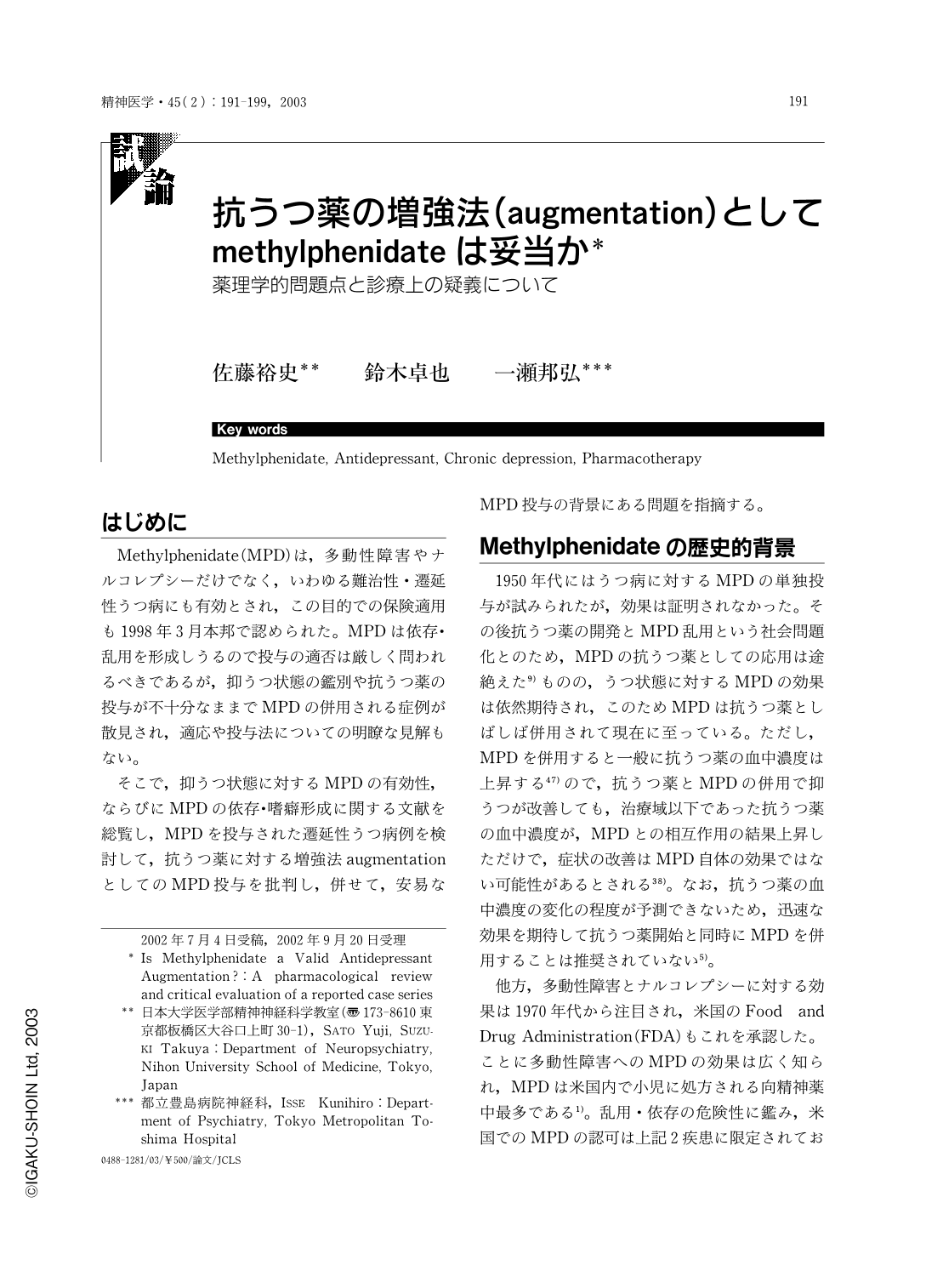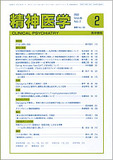Japanese
English
- 有料閲覧
- Abstract 文献概要
- 1ページ目 Look Inside
はじめに
Methylphenidate(MPD)は,多動性障害やナルコレプシーだけでなく,いわゆる難治性・遷延性うつ病にも有効とされ,この目的での保険適用も1998年3月本邦で認められた。MPDは依存・乱用を形成しうるので投与の適否は厳しく問われるべきであるが,抑うつ状態の鑑別や抗うつ薬の投与が不十分なままでMPDの併用される症例が散見され,適応や投与法についての明瞭な見解もない。
そこで,抑うつ状態に対するMPDの有効性,ならびにMPDの依存・嗜癖形成に関する文献を総覧し,MPDを投与された遷延性うつ病例を検討して,抗うつ薬に対する増強法augmentationとしてのMPD投与を批判し,併せて,安易なMPD投与の背景にある問題を指摘する。
Objective Methylphenidate (MPD) has been regarded as effective for narcolepsy and hyperkinetic disorder. It is also believed to possess antidepressant efficacy and is often used to augment otherwise inefficacious pharmacotherapy in refractory depression. The authors review the literature and discuss critically whether the use of MPD for depression is justifiable.
Methods Controlled studies and case reports regarding the use of MPD for depression were researched by MEDLINE. Psychiatric textbooks and monographs in English, German and French were also reviewed.
Result The use of MPD for depression is acclaimed in American and Japanese studies, because of which MPD is indicated for the depression found in (1) terminal medically-ill patients (2) elderly (3) patients with organic brain diseases. The authors in favour of MPD augmentation emphasize its immediate action without side effects. American and Japanese case reports also find MPD effective for refractory major depression and/or dysthymia. However, several articles call attention to the recent increase in MPD abuse, a phenomenon that has long been on the wane. There have been few randomised controlled trials that validate the efficacy of MPD in chronic depression. An analysis of the hitherto reported 15 case vignettes revealed insufficient evaluation of psychosocial factors. Polypharmacy of antidepressants, often using inadequate dosages, with concomitant benzodiazepines was prevalent. Other standard augmentation methods were rarely attempted. Issues concerning doctor-patient relationships were considered to influence the prescription of MPD as an ultima ratio.
Conclusion At present there is little evidence to warrant the use of MPD in antidepressant augmentation. MPD use for depression only further complicates diagnostic, psychopathological and psychotherapeutic problems that may have already contributed to the refractory nature of depression. MPD is thus not justified in chronic depression, with the only possible exception being that in terminal patients, for whom amelioration of depressed mood must be attained in a limited length of time.

Copyright © 2003, Igaku-Shoin Ltd. All rights reserved.


